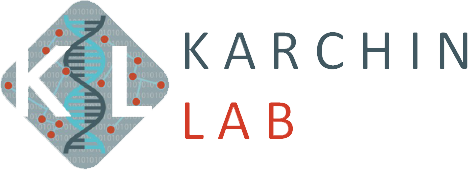Technological advances have generated an abundance of complex, multi-layered datasets, which require new analysis methods and computational tools.
KARCHIN LAB
#
#
#
OUR MISSION
We develop computational methods to enable precision molecular analysis of cancers.
CANCER RESEARCH IS NOW DATA SCIENCE
We use AI and statistical models to interpret cancer genomes, tumor evolution, and the interactions of tumors and the immune system.
CANCER IS A SYSTEMS DISEASE
Successful cancer therapies will target multiple biological pathways, with the immune system playing an important role. Transformative achievements now require computational scientists, oncologists, pathologists, and immunologists to work together closely.
